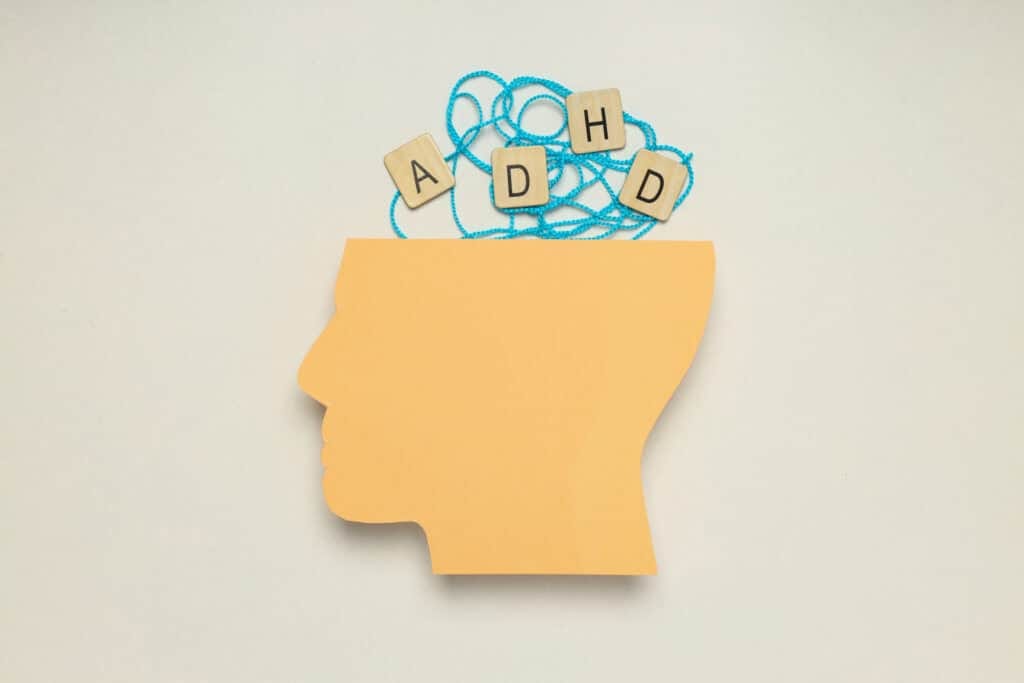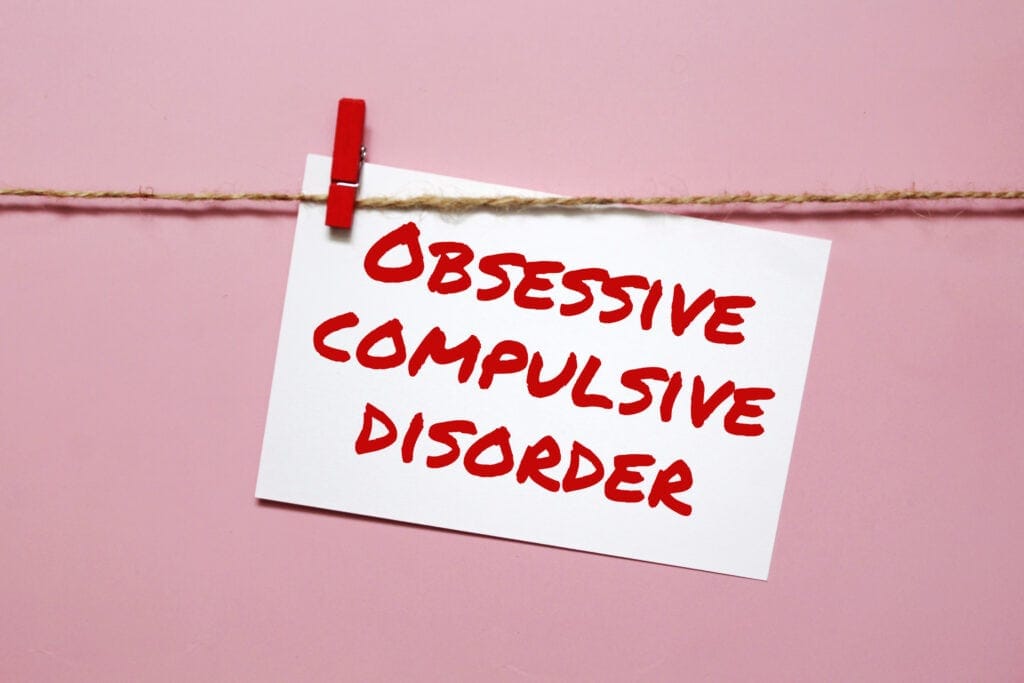If you’ve recently experienced a loss, you may be wondering what to expect in the coming days, weeks, and months. While everyone’s experience with grief is unique, there are some common patterns that many people go through. These patterns are known as the stages of grief, and they were first identified by psychiatrist Elisabeth Kübler-Ross in 1969.
According to Kübler-Ross, there are five stages of grief: denial, anger, bargaining, depression, and acceptance. These stages don’t necessarily happen in a linear fashion, and you may find yourself experiencing some stages more intensely than others. Additionally, not everyone experiences all five stages. However, understanding the stages of grief can help you to recognize and validate your feelings as you move through the grieving process. In this article, we’ll take a closer look at each stage of grief and what you might expect to experience as you work through your loss.
Understanding Grief
Grief is a natural response to loss. It is a complex and personal experience that affects everyone differently. Understanding grief can help you cope with your feelings and come to terms with your loss. In this section, we will explore what grief is and the stages of grief.
What is Grief?
Grief is a natural and normal response to loss. It can be triggered by the death of a loved one, the end of a relationship, or any other significant loss. Grief is a complex and personal experience that can affect you emotionally, physically, and spiritually.
Grief can manifest in different ways, and there is no right or wrong way to grieve. Some people may experience intense emotions, such as sadness, anger, guilt, or anxiety. Others may feel numb or disconnected from their emotions. Physical symptoms, such as fatigue, loss of appetite, or difficulty sleeping, are also common.
The Stages of Grief
The stages of grief were first introduced by psychiatrist Elisabeth Kubler-Ross in her book “On Death and Dying.” The five stages of grief are denial, anger, bargaining, depression, and acceptance. These stages are not linear, and you may experience them in any order or not at all.
Denial
Denial is the first stage of grief. It is a defense mechanism that helps you cope with the shock and pain of your loss. You may feel numb or in disbelief, refusing to accept that your loved one is gone.
Anger
Anger is a natural response to loss. You may feel angry at yourself, others, or even your loved one for leaving you. It is important to express your anger in a healthy way, such as talking to a therapist or writing in a journal.
Bargaining
Bargaining is the third stage of grief. It is a way of trying to regain control and make sense of your loss. You may find yourself bargaining with a higher power, such as praying for your loved one to come back.
Depression
Depression is a common stage of grief. It is a normal response to loss, and it is important to seek help if your symptoms persist. You may feel sad, hopeless, or have difficulty sleeping or eating.
Acceptance
Acceptance is the final stage of grief. It is not about forgetting your loved one or moving on, but about coming to terms with your loss and finding a way to live with it. It is important to remember that everyone grieves differently, and there is no right or wrong way to grieve.
In conclusion, grief is a natural and normal response to loss. Understanding the stages of grief can help you cope with your feelings and come to terms with your loss. Remember that everyone grieves differently, and it is important to seek help if you need it.
The Kübler-Ross Model
The Kübler-Ross Model, also known as the Five Stages of Grief, is a framework developed by Swiss-American psychiatrist Elisabeth Kübler-Ross. The model outlines the stages that individuals go through when faced with grief and loss. Understanding these stages can help individuals cope with the emotional and psychological effects of grief.
Elisabeth Kübler-Ross
Elisabeth Kübler-Ross was a Swiss-American psychiatrist who is best known for her work on the stages of grief. She was born in Switzerland in 1926 and studied medicine at the University of Zurich. After completing her medical degree, she moved to the United States where she continued her work in psychiatry.
Throughout her career, Kübler-Ross was known for her work with terminally ill patients. She believed that it was important for medical professionals to address the emotional and psychological needs of their patients, in addition to their physical needs. Her work on the stages of grief was informed by her experiences working with patients who were facing the end of their lives.
The Five Stages of Grief
The Kübler-Ross Model outlines five stages of grief that individuals may experience when faced with loss. These stages are not necessarily linear and individuals may move back and forth between them. The five stages are:
- Denial: This stage is characterized by a refusal to accept the reality of the situation. Individuals may feel numb or in shock and may struggle to believe that the loss has occurred.
- Anger: In this stage, individuals may feel angry and resentful about the loss. They may feel that the loss is unfair or unjust and may direct their anger towards others or towards themselves.
- Bargaining: In this stage, individuals may try to negotiate with a higher power or with themselves in an attempt to change the outcome of the situation. They may make promises or try to make deals in an effort to avoid the reality of the loss.
- Depression: This stage is characterized by feelings of sadness, hopelessness, and despair. Individuals may feel overwhelmed by the reality of the loss and may struggle to find meaning or purpose in their lives.
- Acceptance: In this final stage, individuals come to terms with the reality of the loss. They may begin to find ways to move forward and rebuild their lives.
It is important to note that not everyone will experience all of these stages, and some individuals may experience them in a different order. The Kübler-Ross Model is a framework that can help individuals understand and cope with grief’s emotional and psychological effects.
The Stages of Grief in Detail
Grief is a complex and personal experience. There is no right way to grieve, and everyone experiences it differently. However, there are five common stages of grief that many people go through. These stages were first outlined by psychiatrist Elisabeth Kübler-Ross in her book “On Death and Dying.”
Denial
In the denial stage, you may feel shock or disbelief. You may have trouble accepting that your loved one is gone or that a significant change has occurred in your life. You may find yourself thinking that this can’t be happening or that it must be a mistake.
Anger
In the anger stage, you may feel a range of emotions, including frustration, irritability, and even rage. You may feel angry at yourself, others, or the situation. You may feel like life is unfair or that you’ve been robbed of something important.
Bargaining
In the bargaining stage, you may try to negotiate with a higher power or with yourself. You may find yourself making deals or promises in an attempt to regain control or find meaning in the situation. You may think that if you do something differently or make a sacrifice, things will go back to the way they were.
Depression
In the depression stage, you may feel overwhelming sadness, despair, or hopelessness. You may feel like you’ve lost the ability to enjoy life or that there’s no point in trying. You may withdraw from others or struggle to find meaning in your life.
Acceptance
In the acceptance stage, you may come to terms with your loss or the change in your life. You may find a new sense of purpose or meaning. You may begin to feel more at peace with yourself and your situation.
It’s important to note that not everyone goes through these stages in a linear or predictable way. You may experience some stages more intensely than others, or you may skip some stages altogether. Additionally, you may revisit some stages at different times throughout your grieving process.
Overall, the stages of grief are a helpful framework for understanding the emotional journey of grief. By recognizing and acknowledging your feelings, you can take steps towards healing and finding a new sense of normalcy in your life.
Grieving Process
Experiencing the loss of a loved one is never easy, and the grieving process can be overwhelming. Understanding the stages of grief can help you navigate through this difficult time. The five stages of grief, as identified by psychiatrist Elisabeth Kubler-Ross, are denial, anger, bargaining, depression, and acceptance. However, it is important to note that everyone experiences grief differently, and you may not go through all of these stages or experience them in the same order.
Symptoms
Grief can manifest itself in many different ways, and it is important to recognize the symptoms so that you can take care of yourself during this difficult time. Common symptoms of grief include:
- Feelings of sadness, emptiness, and hopelessness
- Difficulty sleeping or changes in appetite
- Fatigue and lack of energy
- Difficulty concentrating or making decisions
- Anger and irritability
- Numbness or detachment from others
- Physical symptoms such as headaches, stomachaches, or muscle tension
Defense Mechanism
During the grieving process, it is common to experience defense mechanisms such as denial, isolation, and repression. These mechanisms can help you cope with the pain of loss, but it is important to recognize when they are no longer serving you and seek support if needed.
Meaning-Making
Finding meaning in the loss can be an important part of the grieving process. This can involve reflecting on the relationship you had with the person who passed away, finding ways to honor their memory, or seeking out spiritual or religious support.
Regrets
It is common to experience regrets during the grieving process, such as wishing you had spent more time with the person who passed away or feeling guilty about things left unsaid. It is important to acknowledge these regrets and find ways to work through them, such as writing a letter or talking to a therapist.
Resources
There are many resources available to help you during the grieving process, including support groups, therapy, and self-help books. It is important to find the resources that work best for you and to reach out for help when you need it.
Remember, grieving is a natural and necessary process, and it is important to be patient and kind to yourself as you navigate through it.
Dealing with Grief
Dealing with grief is a challenging process, but working through it is essential to heal. Here are some ways to help you cope with your grief:
Support
It’s important to have a support system during this difficult time. Surround yourself with people who care about you and are willing to listen. Don’t be afraid to reach out to friends, family, or a therapist for support. Joining a support group with individuals who have experienced similar losses can also be helpful.
Relationship
Grief can put a strain on relationships, but it’s important to communicate with your loved ones about your feelings. Be honest about your needs and ask for help when you need it. Avoid isolating yourself and try to maintain social connections.
Control
Grief can make you feel like you’ve lost control, but there are things you can do to regain a sense of control. Establish a routine and stick to it. Focus on what you can control, such as your self-care and environment. Take small steps towards your goals and celebrate your progress.
Healing
Healing is a process that takes time. Allow yourself to feel your emotions, and don’t suppress them. Find healthy ways to cope, such as exercise, meditation, or creative outlets. Seek professional help if you’re having trouble coping with your grief.
Comfort
Comfort is essential during this difficult time. Take care of yourself by getting enough sleep, eating well, and engaging in self-care activities. Surround yourself with things that bring you comfort, such as a favorite blanket or a cherished photo. Practice self-compassion and be gentle with yourself.
Dealing with grief is a difficult journey, but with support, communication, and self-care, you can work through it and find healing. Remember to take things one day at a time and be patient with yourself.
The Role of God and Higher Power in Grief
When it comes to coping with grief, many people turn to their faith or belief in a higher power for comfort and guidance. The role of God or a higher power in grief can be significant for those who find comfort in their spirituality or religion. Here are some ways that God or a higher power can help you cope with grief:
Provides Comfort and Support
Believing in a higher power can provide a sense of comfort and support during difficult times. You may find solace in prayer or meditation, and feel a sense of peace knowing that you are not alone in your grief. Your faith can give you the strength to keep going and provide a sense of hope for the future.
Offers Perspective and Understanding
Many people find that their faith gives them a sense of perspective and understanding about life and death. Believing in a higher power can help you make sense of your loss and find meaning in your grief. You may find that your faith gives you the ability to see beyond your pain and find purpose in your suffering.
Provides a Sense of Community
Religion and spirituality can provide a sense of community and support during times of grief. You may find comfort in attending religious services or gathering with others who share your beliefs. Being part of a community can help you feel less alone in your grief and provide a sense of belonging.
Helps with Forgiveness and Acceptance
Believing in a higher power can also help with forgiveness and acceptance. You may find that your faith gives you the ability to forgive yourself or others for any pain or hurt that may have been caused. You may also find that your faith helps you accept your loss and find peace in the midst of your grief.
In conclusion, the role of God or a higher power in grief can be significant for those who find comfort in their spirituality or religion. Believing in a higher power can provide comfort, support, perspective, understanding, a sense of community, and help with forgiveness and acceptance. If you find that your faith is an important part of your life, it can be a valuable resource as you navigate the difficult journey of grief.
Clinical Depression and Grief
Experiencing grief can be a difficult and overwhelming process. It is important to understand that grief and depression are not the same thing, but they can sometimes overlap. In this section, we will discuss clinical depression and grief, and how they can be related.
Clinical Depression
Clinical depression is a mental health disorder that can cause persistent feelings of sadness, loss of interest in activities, and a range of physical and emotional symptoms. It is important to differentiate between grief and clinical depression, as they can have similar symptoms but require different treatment approaches.
If you are experiencing symptoms of depression, such as feelings of hopelessness, persistent sadness, and loss of interest in activities, it is important to seek help from a mental health professional. They can help you determine if you are experiencing clinical depression and provide appropriate treatment.
Terminally Ill Patients
Terminally ill patients and their loved ones may experience a unique form of grief. The diagnosis of a terminal illness can be devastating and can lead to feelings of hopelessness and despair. It is important for these individuals to seek support from healthcare professionals, as well as family and friends.
Terminally ill patients may also experience symptoms of clinical depression. In fact, depression is common among individuals with terminal illnesses. It is important to recognize the symptoms of depression in these individuals and seek appropriate treatment.
Some common symptoms of depression in terminally ill patients include:
- Persistent sadness or feelings of hopelessness
- Loss of interest in activities
- Changes in appetite or sleep patterns
- Fatigue or lack of energy
- Difficulty concentrating or making decisions
If you or a loved one is experiencing these symptoms, it is important to seek help from a mental health professional. They can provide support and treatment to help manage symptoms of depression and improve quality of life.
In conclusion, grief and clinical depression can be related, but it is important to differentiate between the two. If you are experiencing symptoms of depression, it is important to seek help from a mental health professional. If you or a loved one is terminally ill, it is important to seek support and treatment to manage symptoms of depression and improve quality of life.
The Grief Model by David Kessler
When it comes to grieving, there are several models out there that attempt to explain the process. One of the most well-known models is the Five Stages of Grief by Elisabeth Kubler Ross. However, David Kessler, a Swiss American psychiatrist and grief expert, has expanded on this model with his own insights and experiences.
David Kessler
David Kessler is a renowned grief expert who has written several books on the subject. He co-authored two books with Elisabeth Kubler Ross and adapted her stages of dying for those in grief. He has also added his own insights to the model, including the sixth stage of grief.
The 6th Stage of Grief
Kessler’s sixth stage of grief is finding meaning. He believes that after acceptance, people can find a new sense of purpose and meaning in their lives. This stage allows people to move forward and continue to honor their loved ones while also finding joy in their own lives.
In his TED Talk, Kessler explains that “meaning doesn’t come to us, we create it.” He suggests that people can find meaning through various activities, such as volunteering, creating art, or starting a new project. By focusing on finding meaning, people can move through the grieving process and find a sense of hope for the future.
Kessler’s model is not meant to be a linear process, but rather a guide to help people understand their own grief. It’s important to note that everyone grieves differently, and there is no right or wrong way to do so.
In summary, David Kessler’s model of grief adds a new perspective to the traditional stages of grief model. By including the sixth stage of finding meaning, Kessler offers a way for people to move forward and find joy in their lives after experiencing loss.
Conclusion
Grieving is a natural process that everyone experiences differently. The five stages of grief are a helpful framework for understanding the emotional journey that comes with loss. Remember that you may not experience every stage, and you may not experience them in order. Grief is a personal journey, and it’s important to allow yourself to feel and process your emotions in your own way.
Here are some key takeaways to keep in mind as you navigate the stages of grief:
- Denial: It’s normal to feel disbelief or shock after a loss. You may feel like you’re in a dream or that the loss isn’t real. Give yourself time to process this stage, and don’t be too hard on yourself if you’re having trouble accepting the reality of the situation.
- Anger: Feeling angry is a natural response to loss. You may be angry at the person who died, at yourself, or at the world in general. It’s important to find healthy ways to express your anger, such as talking to a therapist or exercising.
- Bargaining: This stage is characterized by a desire to go back in time and change what happened. You may find yourself thinking “if only” or “what if.” It’s important to recognize that you can’t change the past and to focus on finding ways to move forward.
- Depression: Feeling sad and hopeless is a common part of the grieving process. It’s important to take care of yourself during this stage, by getting enough sleep, eating well, and seeking support from friends and family.
- Acceptance: This stage doesn’t mean that you’re “over” your loss, but rather that you’ve come to terms with it. You may still feel sad or miss the person who died, but you’re able to start moving forward with your life.
Remember that there is no “right” way to grieve, and everyone’s journey is different. Be kind to yourself, and don’t be afraid to seek help if you need it. Grief can be a long and difficult process, but with time and support, you will get through it.








